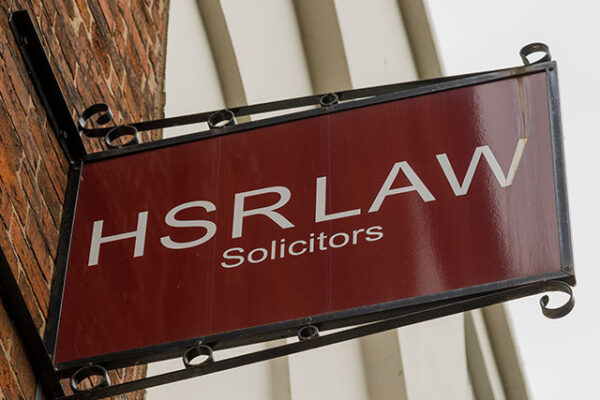Contested Probate explained and when to take legal action
There are occasions when the contents of a Will – or the lack of existence of a Will – comes as a surprise to family and friends. We can offer an empathetic service whereby we will listen to your concerns and guide you as to whether, objectively, you can / should take legal action.
Is the Will valid?
The first question we will need to ask, is whether the Will is valid in accordance with a 9 Wills Act 1837. In order to be valid, the Will must, on the face of it, be signed by the testator, or by some person in his presence (and by his direction) with the intention to give effect to the contents. The testator’s signature must have been witnessed by two people, who are over the age of 18 and are neither related to the testator, nor a Beneficiary under the terms of the Will.
You can still claim against the Estate of the deceased
Even if the Will satisfies the above criteria, we may still be able to assist you in bringing a claim against the Estate of the deceased. Some of the typical circumstances that arise are detailed below:
- The Will was changed near to the testator’s death, with significant changes being made to those contained in the previous Will.
- There may be concerns as to the testator’s capacity at the time of making the Will.
- The Will is believed to be a forgery; for example, a more recent Will has been located in an unusual place by an unexpected family member or friend, post death.
- The testator was negatively influenced against a (proposed) Beneficiary by another family member or friend, prior to the last know Will having been prepared.
- The testator made promises as to how their estate would be left during their lifetime and, either no Will has been prepared, or the Will does not accord with the promises made.
- The testator was under pressure (or “undue influence”) at the time of preparing the Will, as a result of which the contents are not as expected.
- The Will does not leave sufficient provision for a family member and a claim under the Inheritance (Provision for Families and Dependants) Act 1975 is necessary.
- The testator advised that they had made a Will prior to their death, but it cannot be found and intestacy rules are being applied.
- Relations between the Executor(s) and Beneficiaries are poor and lack trust.
Making or defending a claim? We can advise you of your position
In any of the situations listed above there may be grounds to bring a claim against the Estate. Each case will turn on its own merits and consideration will need to be given to the evidence that exists, whether it supports or undermines the case. We can advise you of your position, whether you act in making a claim, or defending one.
An early step that may be taken, if Probate has not already been granted, is to place a caveat.
This can be a useful tool in certain circumstances, particularly where there may need to be a claim under the Inheritance (Provision for Families and Dependants) Act 1975. If the caveat is granted, it halts Probate being granted for a 6 month period, preventing the administration of the Estate. This gives the parties an opportunity to engage regarding the dispute. The caveat can be extended beyond 6 months by the caveator if necessary.
A caveat can be challenged by means of a “warning”.
If this occurs, the caveator has 14 days to “enter an appearance”, failing which the caveat will be removed. If an “appearance” is entered, the caveat is likely to be made permanent which means it can only be lifted by Order of the Court.
Challenging a Will or contesting probate requires an objective assessment of the facts and circumstances to establish whether there is a case to answer. If you find yourself in any of the circumstances mentioned above, we would invite you to make an appointment to discuss your concerns.
Have you ever wanted to just ask a lawyer if they can help you, without worrying about what it may cost to contact them? If so, call HSR Law Solicitors and together we can work out what your next steps might be… in confidence, at no cost and with no obligation. Complete our simple form with your name and contact number and we will call you back to discuss how we can help.
Alternatively, contact Katie Williams, or Richard Allwood directly: our Dispute Resolution specialists.
Your Contested Probate Team
Our Latest News
- Am I Eligible for the Right to Buy Scheme? Key Rules ExplainedThe Right to Buy scheme helps council tenants purchase their homes at a discount, but not everyone qualifies. In this guide, Ryan Morgan, Partner and Residential Conveyancing Solicitor at HSR Law, explains who can apply, how discounts are calculated, and how our team can support you through the process from start to completion.
- Should I Replace an Enduring Power of Attorney with a Lasting Power of Attorney?If you created an Enduring Power of Attorney (EPA) before October 2007, it remains legally valid and does not need replacing. However, many people now choose to make a Lasting Power of Attorney (LPA) for added flexibility, including health and welfare decisions. Our specialist solicitors can advise on whether an LPA is right for you and guide you through the full creation and registration process.
- Lasting Powers of Attorney Certificate Provider – What you need to knowA Lasting Power of Attorney must include a certificate signed by an independent person confirming the donor understands and agrees freely to the LPA. Choosing the right certificate provider is essential to avoid rejection or delay. HSR Law can guide and act as your certificate provider.
- Graham Bembridge retires after more than 50 years in the Legal ProfessionGraham is taking his well-earned retirement from the firm after 50+ years in the Legal Profession in Gainsborough.
- Protecting your Estate against future care costs – “Can I transfer my property to my children to avoid paying care fees?”A question we often get asked is whether clients are able to gift their assets away to their children to avoid this asset being taken into consideration if they required residential care.
- Share Rights & Classes: What your investment really says about you!If you are dealing with specific situations regarding share classes or rights, it’s often advisable to seek legal advice to ensure the Articles of Association accurately reflect the desired governance structure.









